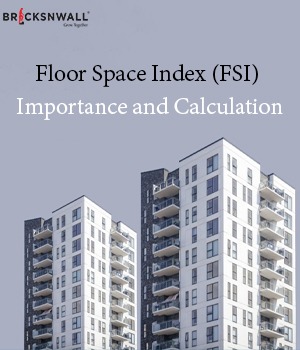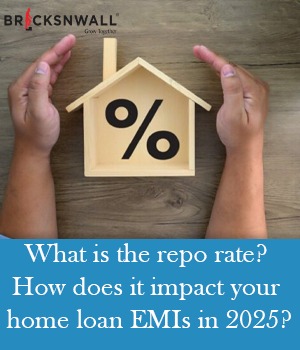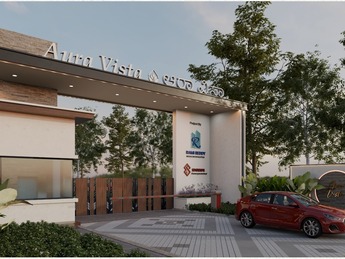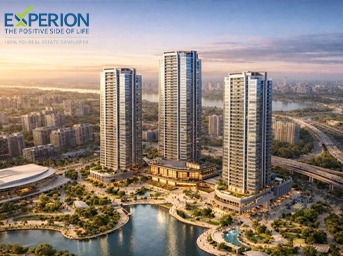How to Choose the Perfect Location for Your New Home
Bricksnwall Trusted Experts

Have you ever wondered why certain places have significantly greater real estate prices than others? The reason for this is that the location of houses is crucial to the real estate industry. A suburban home would be less expensive than one in the heart of the metropolis.
It's safe to assume that picking the ideal location is one of the most crucial choices when buying a new residence. As they say, a home's worth is primarily determined by its location, and a beautiful home is only as good as the area in which it is located. Selecting the appropriate location requires carefully weighing a number of aspects, regardless of whether you're a first-time homebuyer or hoping to upgrade to a more optimal space.
We'll walk you through the important factors to take into account while choosing the ideal site for your home in this article.
1. Close to Necessary Facilities
The demand for the location increases with the number of nearby amenities. Homes in these areas would be profitable and comfortable due to the proximity to public transportation hubs, schools, hospitals, grocery stores, and shopping centres. Amenities like the daily commute to work, the proximity to department shops and shopping malls, and the ease of access to your children's schools can make or break your house choice.
2. Safety and Neighbourhood
The demand for homes would be higher in neighbourhoods that provide a clean and safe environment than in regions that are less accessible and abandoned. One of the most important factors when selecting a place is the neighborhood's quality. Your living experience can be substantially improved by a tidy, well-kept neighbourhood with gated security and a feeling of community. When investigating areas, take into account the overall atmosphere, whether it is lively with young professionals, family-friendly, or a combination of the two. Additionally, keep an eye on the area's general safety and crime rates.
3. Plans for Future Development
While assessing an area's existing condition is vital, it is also critical to take future development into account. Future development areas typically see significant growth over time, providing high returns on investment. The planning agencies of the local government or real estate brokers are fully aware of the real estate market's future developments. To find out how your property will perform in terms of rentals or resale value, as well as to find out what kind of commercial projects, infrastructure, or new residential developments are planned for the region, think about contacting a few.
4. Transportation and Connectivity
When assessing how well a facility is connected to
important areas of the city, connectivity and ease of access are important
considerations. Accessibility is essential for everyday commuting, regardless
of whether you drive your own car or take public transport. Well-maintained
roads, metro stations, bus terminals, and highways near your home are examples
of infrastructure improvements that can greatly improve the convenience of
living there.
Families find it easy to get to work via highways, and school-age children place a high value on school transportation's ability to get them to their homes. Providing convenient access to key highways, public transit lines and city hubs is a priority for some of Lucknow's top developers.
5. The surrounding environment's quality
When buying a property, the neighbourhood in which it is situated has a significant impact on your overall quality of life. Given the escalating worries about noise levels and air pollution, the quantity of green space and sustainability considerations should be given top priority. The quality of life is significantly improved by nearby parks, open spaces, and manicured walking routes. These areas give people a chance to interact with their neighbours in addition to offering a rewarding recreational area where kids may play or adults can take a leisurely walk.
6. Economical and Economical Value
The location of your property will obviously be greatly influenced by your budget. However, don't mistake affordability with less expensive solutions. Finding value for money in locations that provide a strong infrastructure, security, a high standard of living, and a high rate of future value return is what it means to be affordable.
7. Near Social and Cultural Centres
The social and cultural scene is a significant factor when looking for a place to live in an urban area for an extended period of time. Hubs like cafes, shopping malls, theatres, clubs and libraries raise the property's value and demand since they provide access to entertainment and leisure. This adds convenience and enjoyment to the living experience.
8. Land Titles and Legalities
Making sure all the paperwork is in place is
essential before buying a house. Verify that the property has a valid title and
that none of the legal documents have any discrepancies or contradictions. This
will protect your money and help you prevent any future legal problems. It's
also important to remember that the developer has no ongoing or previous
conflicts with the government. Permission problems and encroachment cause many
projects to stop.
Make sure the developer has a solid track record of providing clear titles and legal compliances before selecting a site for your house.
9. The Value of Resale
Your home represents a substantial financial
investment in addition to being a private environment. When it comes to the
prospective resale value of your property, prime or emerging areas are always a
good decision. These areas frequently have the greatest utilities, amenities,
and connection, which makes them desirable places to invest.
Planning and diligent, in-depth research are necessary while selecting the ideal site for your home. The quality of life your property will provide depends on a number of factors, including future expansion potential, handy amenities inside or around the community, and nearby critical amenities. A location that balances future benefits, comfort, safety, and convenience is ideal.







